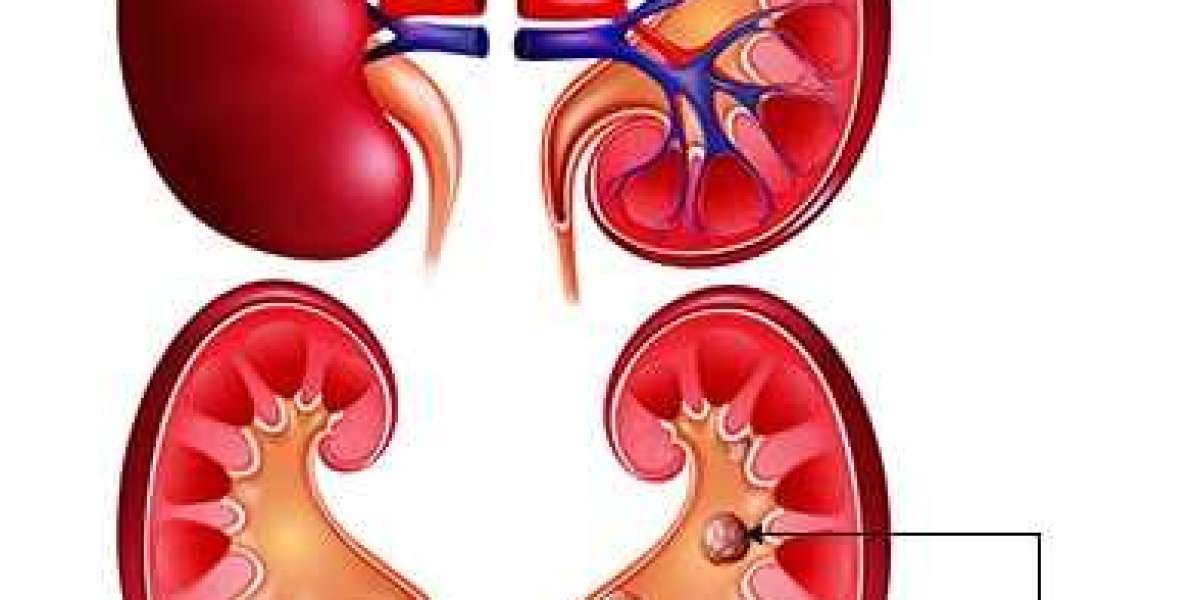Kidney stones are mineral and salt crystals that deposit in the kidneys due to an unhealthy diet, excess body weight, certain medical disorders, and certain medications. From the kidney to the bladder, these can harm any part of the urinary tract.
In this blog, Dr. Niren Rao, founder of Delhi Urology Hospital, discusses various aspects like causes, symptoms, and treatment of kidney stones. The expert doctor also explains how simple it is to get kidney stone surgery in Delhi.
Causes of Kidney Stones
Many risk factors may contribute to the development of kidney stones in adults. These are:
Genetics
Obesity
Not drinking enough water
Diet high in protein, sodium, or fructose
Digestive or bowel disease
Certain medical conditions like UTIs, renal tubular acidosis, and hyperparathyroidism
Symptoms of Kidney Stones
One suffering from kidney stones may experience the following symptoms:
Pain in the lower back or side of the body
A feeling of nausea or vomiting
Blood in urine
Pain while urinating
Unable to pass urine
Frequent urge to urinate
Smelly urine with a cloudy texture
Fever
Diagnosis of Kidney Stones
There are 3 basic ways to screen if someone has kidney stones. It can be done via the following tests:
Imaging Tests: This includes an X-ray, CT scan, and ultrasound. These can help the doctor to understand the exact size, shape, location, and count of kidney stones. Based on these tests, the doctor can prescribe the best-suited treatment for the patient.
Blood Test: A blood test can help the doctor understand the functioning of the kidney. It also helps diagnose any underlying infection in the kidney.
Urine Test: This test determines symptoms of infection along with the levels of the chemicals that lead to kidney stones.
Treatment of Kidney Stones
Kidney stones can be removed from the body through 3 techniques. These are:
Via Urine: It is advised to drink at least 8 glasses of water every day to increase urine frequency to pass the smallest size of stones. Over-the-counter medicines can be given during this time to reduce pain and discomfort.
Via Breaking Down: Certain medications can help when the size of stones is comparatively bigger to pass on their own. These medications include allopurinol (for uric acid stones), antibiotics (for struvite stones, diuretics (water pills), phosphate solutions, and others.
Via Surgery: Surgery is performed when the stones are too large to pass on their own and are growing continuously. Surgery is also opted for when the stone starts blocking the urine passages, causing infection or kidney damage.
The procedure of Kidney Stone Surgery in Delhi
Here is what one can expect while undergoing a Percutaneous Nephrolithotomy (PNCL) surgery at Delhi Urology Hospital.
General anaesthesia is administered to the patient before starting the procedure.
Once the anaesthesia starts taking effect, the patient is made to lie on his stomach and a small incision of approx. 1 cm is made on his back.
Then a small tube is directly inserted into the kidney through this incision.
Stones are then broken down and removed via the suction technique.
Once all stones are removed, a catheter is placed from the kidney to the bladder for urine passage and removed 24 hours after the surgery.
We hope that this blog has made the fundamentals of kidney stones clear. For more queries and consultation, visit Dr. Niren Rao at Delhi Urology Hospital today! The hospital is renowned for providing effective treatments for kidney stones which also includes the best kidney stone surgery in Delhi. Visit now!





